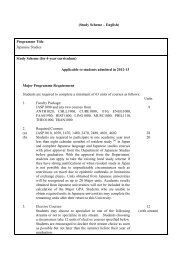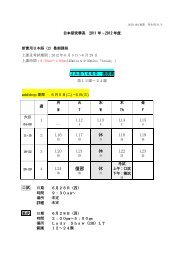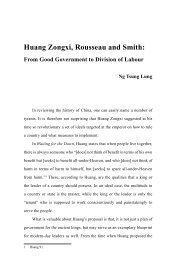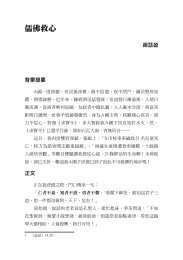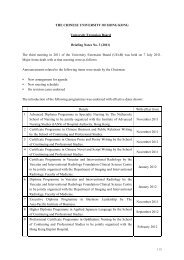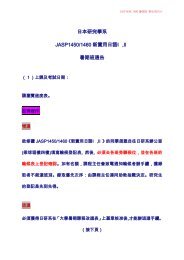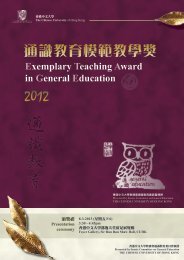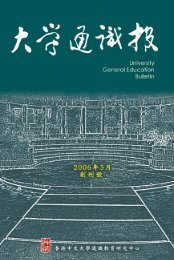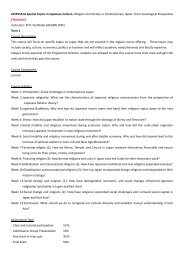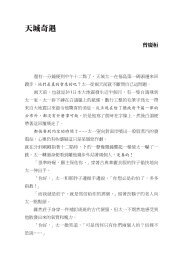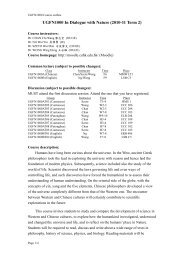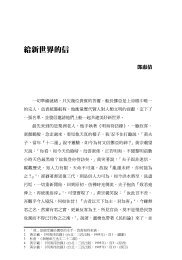ä¸è¼å ¨æ¸ - The Chinese University of Hong Kong
ä¸è¼å ¨æ¸ - The Chinese University of Hong Kong
ä¸è¼å ¨æ¸ - The Chinese University of Hong Kong
You also want an ePaper? Increase the reach of your titles
YUMPU automatically turns print PDFs into web optimized ePapers that Google loves.
Wyman Kwok, Education and Thinking 199<br />
educated to make good use <strong>of</strong> a valuable ability; if a student is willing to think<br />
critically but unable to do so, then she may also not be properly educated in<br />
CT because <strong>of</strong> the lack <strong>of</strong> suitable skills. Only when a student is both able<br />
and willing to think critically could she be said to be a properly educated<br />
critical thinker. Roughly speaking, that part <strong>of</strong> the question relating to ability<br />
corresponds to cognitive skills training, while the part relating to willingness<br />
involves the cultivation <strong>of</strong> affective dispositions.<br />
What are the cognitive skills that should be trained What are the affective<br />
dispositions that should be cultivated A representative and authoritative<br />
study known as the “APA Delphi Report” (Facione, 1990b) <strong>of</strong>fers some<br />
answers. “APA” stands for the American Philosophical Association, which<br />
is the main pr<strong>of</strong>essional organization for philosophers in the United States.<br />
“Delphi” refers to the Delphi Method, which is a well-established qualitative<br />
research methodology for generating a consensus resolution <strong>of</strong> matters <strong>of</strong><br />
opinion. <strong>The</strong> title <strong>of</strong> the report itself is “Critical Thinking: A Statement <strong>of</strong><br />
Expert Consensus for Purposes <strong>of</strong> Educational Assessment and Instruction.”<br />
For this study, the APA collected the opinions <strong>of</strong> 46 CT experts in the U.S.<br />
and Canada concerning their conceptions <strong>of</strong> CT, and analyzed them by the<br />
Delphi Method, in order to arrive at a consensus on the nature <strong>of</strong> CT. <strong>The</strong><br />
resulting Report is intended to provide useful references and guidelines for<br />
the purpose <strong>of</strong> educational assessment and instruction in CT. <strong>The</strong> Report is<br />
rather long, but there is an “Executive Summary” (ES) <strong>of</strong> it, which can be<br />
downloaded from the Internet (Facione, 1990a).<br />
According to the ES (Facione, 1990a, p. 6), the experts arrived at the<br />
following consensus list <strong>of</strong> CT cognitive skills and sub-skills:



